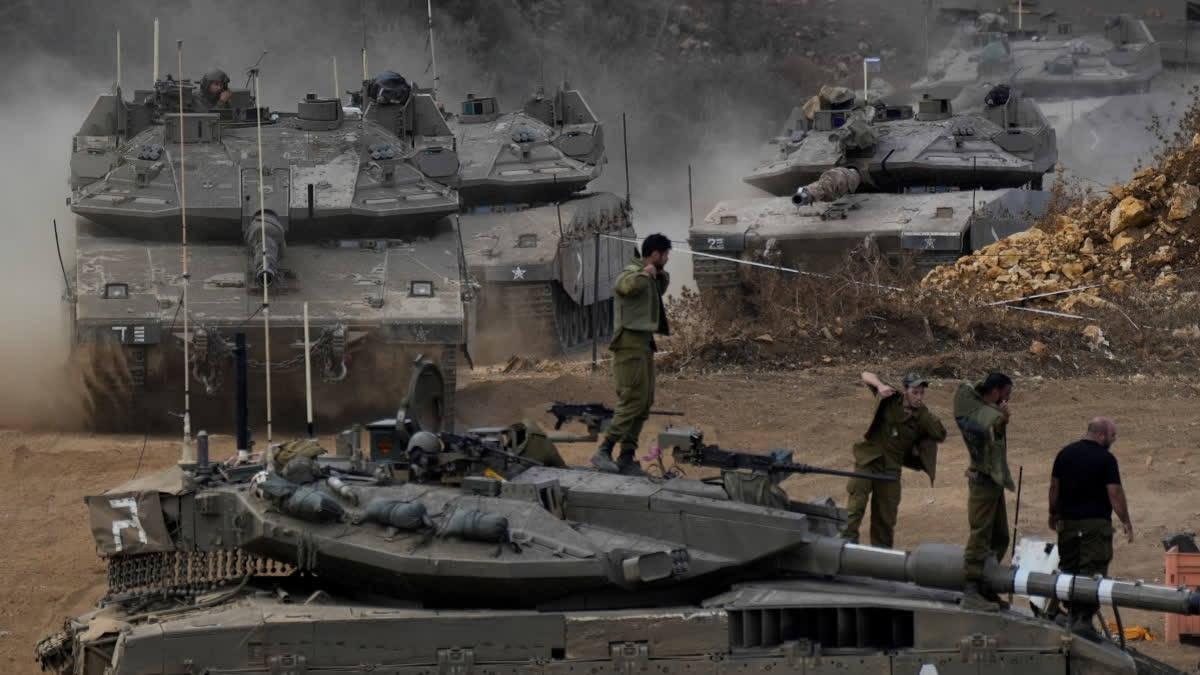Jerusalem: Iran launched at least 180 missiles at Israel on Tuesday evening, causing scattered damage and fires from falling shrapnel, but Israeli authorities said there were no injuries. An Israeli security official said most of the missiles were intercepted, though some managed to land.
Israeli officials said Iran would pay a price for the strike.
The missile attack came after Israel said ground troops crossed into Lebanon in what the military described as a limited operation to root out Hezbollah fighters and infrastructure.
Hezbollah, meanwhile, said it saw no sign of Israeli forces and that its troops were ready to confront them.
Israel said its incursion would be focused on the narrow strip of land just across the border. But it also issued evacuation warnings covering a wider swath of Lebanon, raising fears that a large-scale ground invasion was soon to come.
In recent days, a wave of Israeli airstrikes has killed Hezbollah leader Hassan Nasrallah and several of his top commanders, while driving hundreds of thousands of Lebanese from their homes. Israel says a ground operation is now necessary to return tens of thousands of displaced Israelis to their homes in the north, pummeled by continuous rocket fire from Hezbollah since Oct. 8.
Here's what we know:
Why did Iran launch missiles toward Israel?
Israel's military said it identified 180 missiles launched from Iran shortly after 7:30 p.m. Sirens blared across the country, and Israelis were ordered to stay in protected areas. An Israeli security official said that in cooperation with the United States, the Israeli Air Force intercepted many of the missiles, though there some direct hits damaging buildings and igniting some fires.
U.S. and British officials later said approximately 200 missiles had been launched by Iran.
Iran said the missiles were in response to the killing of Hezbollah leader Hassan Nasrallah and Revolutionary Guard Gen. Abbas Nilforushan, both killed in an Israeli airstrike last week in Beirut. It also mentioned Ismail Haniyeh, a top leader in Hamas who was assassinated in Tehran in a suspected Israeli attack in July. It warned this attack represented only a "first wave," without elaborating.
In April, Iran launched more than 300 drones, ballistic missiles and cruise missiles at Israel. Most were intercepted outside of Israel. One girl was injured from falling shrapnel.
Israel vowed to respond, pushing the two archenemies closer toward direct confrontation and the region closer toward a broader war.
Did Israeli troops enter Lebanon?
The military says that Israeli troops entered Lebanon late Monday, though it was not clear whether they remained inside or were moving in and out of the country.
In a surprise announcement, Israel said Tuesday that its ground forces have been operating covertly in Lebanon for the last year, carrying out dozens of small ground operations. Rear Adm. Daniel Hagari, the army's spokesman, said the current raid is an expansion of these activities.
